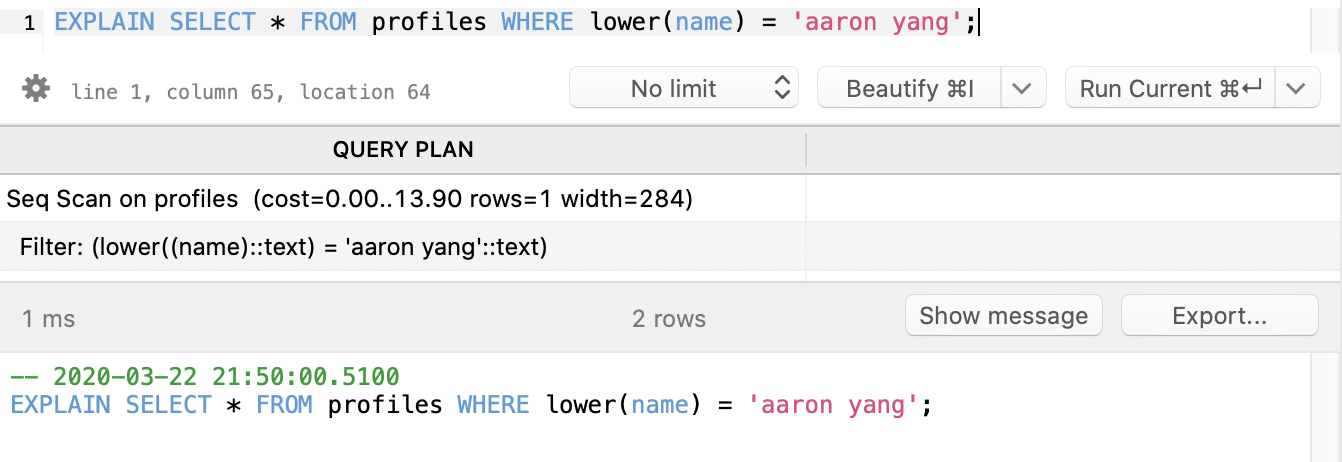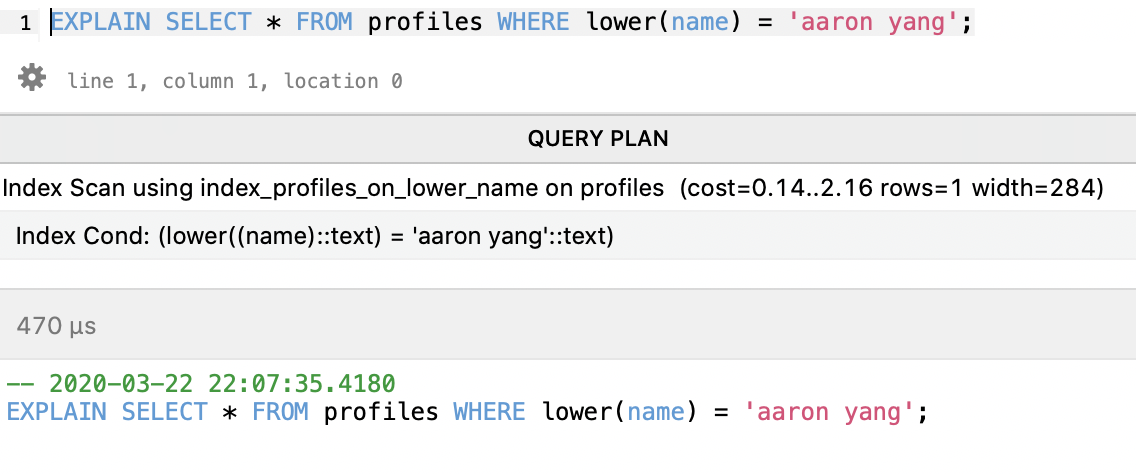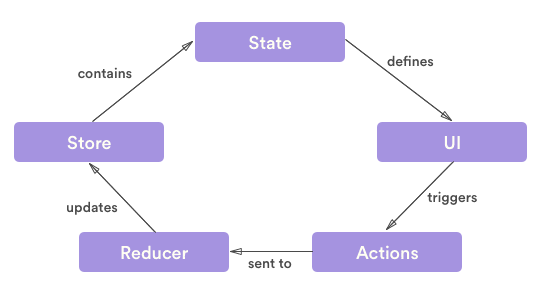Expression Index in RDBMS
What is the expression index?
According to the description from Wikipedia
An expression index, also known as a function based index, is a database index that is built on a generic expression, rather than one or more columns. This allows indexes to be defined for common query conditions that depend on data in a table, but are not actually stored in that table.
When you query on something that is computed from other columns frequently and want to speed it up, you will need this.
I will use PostgreSQL as an example in this article because it is my favorite database.
I have a profiles table which has a name column to store the name of users, and I already created an index for the name column
Then I want to select some profiles where lowercase name is xxx, so the query looks like below:
1 | SELECT * FROM profiles WHERE lower(name) = 'aaron yang'; |
Create Index
It is very simple to create an index, we need to use ( and ) to wrap the expression
1 | CREATE INDEX index_profiles_on_lower_name ON profiles (lower(name)); |
After that we created an expression index, with condition is (lower((name)::text))

Explain Query
To make sure the index has been used.
EXPLAIN query before the expression index created
1 | EXPLAIN SELECT * FROM profiles WHERE lower(name) = 'aaron yang'; |

As you may have noticed Seq Scan on profiles, it is a full table scan
Let’s try again, the same EXPLAIN query after expression index created
1 | EXPLAIN SELECT * FROM profiles WHERE lower(name) = 'aaron yang'; |

Yeah, the query is using the expression index.
If your query still using the
Seq Scan, that is because the rows of the table are too small, Postgres estimate seq scan will faster than using an index, see more here or here
Databases Compatibility
In 2020, most of the relation database supported this feature, but name it differently: expression index, function index
Some of the databases unsupported this feature, but there is a workaround for them.
Supported ✅
you can create an expression index directly.
| Database | Feature name | Supported Version | References |
|---|---|---|---|
| PostgreSQL | Indexes on Expressions | 9.5.0 and the above | docs |
| SQLite | Indexes on Expressions | 3.9.0 and the above | docs |
| Oracle | Function-Based Indexes | 8i and the above | docs |
| MySQL | Functional Key Parts | 8.0.13 and the above | docs |
The feature name of databases is interesting, do you see the pattern? it shows PostgreSQL and SQLite are closer, and Oracle and MySQL are closer.
Unsupported ❌
but you can work around by creating a computed column then create an index on it.
|Database|Feature name|Supported Version||References|
|—|—|—|—|
|MariaDB|Indexes on Generated columns|10.2.3 and above support index on virtual column|docs|
|SQL Server|Indexes on Computed column|still can’t index on virtual but persisted column|docs|
Hello SQL Server?
References
- https://www.postgresql.org/docs/current/indexes-expressional.html
- https://www.sqlite.org/expridx.html
- https://docs.oracle.com/en/database/oracle/oracle-database/20/adfns/indexes.html#GUID-44AD4D28-A056-4977-B2F7-AC1BC50EDC87
- https://dev.mysql.com/doc/refman/8.0/en/create-index.html#create-index-functional-key-parts
- https://mariadb.com/kb/en/generated-columns/
- https://docs.microsoft.com/zh-tw/sql/relational-databases/indexes/indexes-on-computed-columns?view=sql-server-ver15
Expression Index in RDBMS



